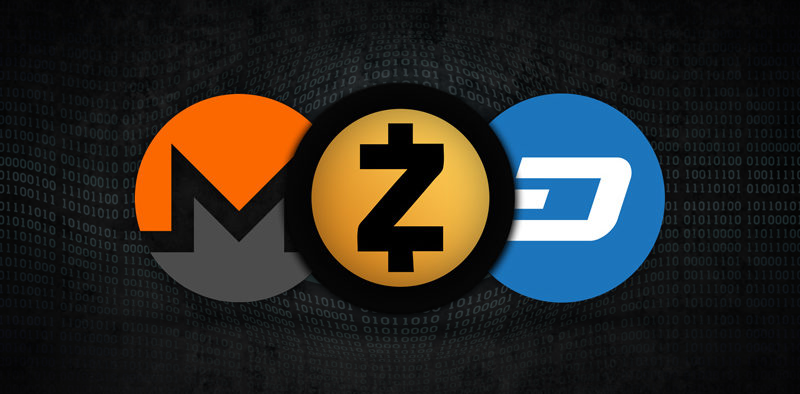
Financial privacy is a rare and valued commodity. Every credit card purchase you make is monitored and registered and it is possible to determine a lot about one person by analyzing their spending habits. Banks hold all of this information and there have been cases where banks have sold that same information to telemarketers, leading to targeted advertisement. Even worse, sensitive financial information is often stolen by hackers who then sell it in deep web markets.
Bitcoin came to solve some of the aforementioned problems by giving us the liberty to transact with each other without the interference or permission of a third party. However, because of its pseudonymous nature, it is not able to offer complete financial privacy, as transactions (although not overtly identified) can be linked to individuals or companies through advanced techniques. Luckily, this service is now available thanks to the inception of anonymous cryptocurrencies a.k.a privacy coins that allow users to achieve complete financial privacy. Let's have a look at the top 3 privacy coins out there: Dash, Zcash and Monero.
Dash (DASH)
Dash (DASH) is the first privacy coin of our list. It was first released in 2014 and has changed name twice (Xcoin, DarkCoin) before finally rebranding as Dash, short for “Digital Cash”. Dash is a fork of Bitcoin that made some improvements on Bitcoin’s code, including the “PrivateSend” (that mixes your coins with others so the transaction becomes untrancable) and “QuickSend” features.
Dash is both a cryptocurrency and a DAO (Decentralized Autonomous Organization). The reward for a solved block doesn’t go exclusively to the miner as with Bitcoin, the Dash DAO receives 10% of the rewards for development ( which goes directly from the blockchain to the proposal owners who requested the fund), making it a self-funded organization. Another 45% of mining rewards go to Masternodes that act as a 2nd tier to the network. These Masternodes, a wallet that contains 1000 or more Dash, are responsible for verifying transactions and the governance of the network, voting on the direction of Dash development and making the organization self-governed.
Visit our Dash (DASH) page here
Zcash (ZEC)
Zcash (ZEC) was launched in 2016 and is also a fork of Bitcoin. It originated from the Zerocoin/Zerocash project, proposed back in 2013, that was supposed to be integrated into the Bitcoin code but ended up becoming an altcoin. Zcash uses zk-SNARK, a form of zero knowledge cryptography, that allows the validation of transactions by the network’s nodes without revealing any information about the transaction itself except for a timestamp. This means that the sender, the receiver and the amount of the transaction are kept secret.
The technology is indeed valuable but not perfect. The SNARK algorithm requires a one-time setup, called Trusted Setup, where keys are generated that allow whoever owns them to create coins out of thin air undetected. This is an issue that plagues zero-knowledge-based protocols in general and that requires trust from the users that whoever is in control of the keys did, in fact, destroy them (that’s why it’s called “Trusted” Setup).
Zcash is run by a US-based, for-profit company, the Zerocoin Electric Coin Company. The company will receive 20% of mining rewards in the first four years in order to fund development and also pay back to investors, many corporations and sectors of the US and Israel government sponsored Zcash.
While Zcash has become one of the main cryptocurrencies to mine within the GPU mining community due to its memory hard algorithm, Equihash, although some perceive Zcash mining as being extremely centralized.
Visit our ZCash (ZEC) page here
Monero (XMR)
Monero (XMR) was created in 2014 and is a fork of Bytecoin. It uses stealth addresses and Ring Confidential Transactions (RingCT) to keep transactions and wallets anonymous. Unlike the other two coins where privacy is an option, in Monero every transaction is anonymous making it an opaque or semi-transparent blockchain. Because it provides a high-level cryptographic privacy, every address and transaction is untraceable and unlinkable, Monero ensures complete fungibility. This means that all coins are worth the same value and are mutually interchangeable, no addresses can be tracked or blacklisted.
The Monero team is made of volunteer workers that are funded by users of the community. The decisions about the development of Monero are open to public discussion and the logs are published for all to see. Monero is becoming increasingly popular both in Darknet markets as with Web browser miners.
Visit our Monero (XMR) page here
Conclusion
As we just saw every privacy coin has its advantages and disadvantages. We listed the three most important ones but there are many others in the market: Verge (XVG), ZenCash (ZEN), Komodo (KMD), Bytecoin (BCN), and the list goes on. It will be interesting to see how privacy coins will evolve and how regulators will respond to privacy coins in 2018 and in the future.
Important information
This website is only provided for your general information and is not intended to be relied upon by you in making any investment decisions. You should always combine multiple sources of information and analysis before making an investment and seek independent expert financial advice.
Where we list or describe different products and services, we try to give you the information you need to help you compare them and choose the right product or service for you. We may also have tips and more information to help you compare providers.
Some providers pay us for advertisements or promotions on our website or in emails we may send you. Any commercial agreement we have in place with a provider does not affect how we describe them or their products and services. Sponsored companies are clearly labelled.













 Opera
Opera
 Safari
Safari